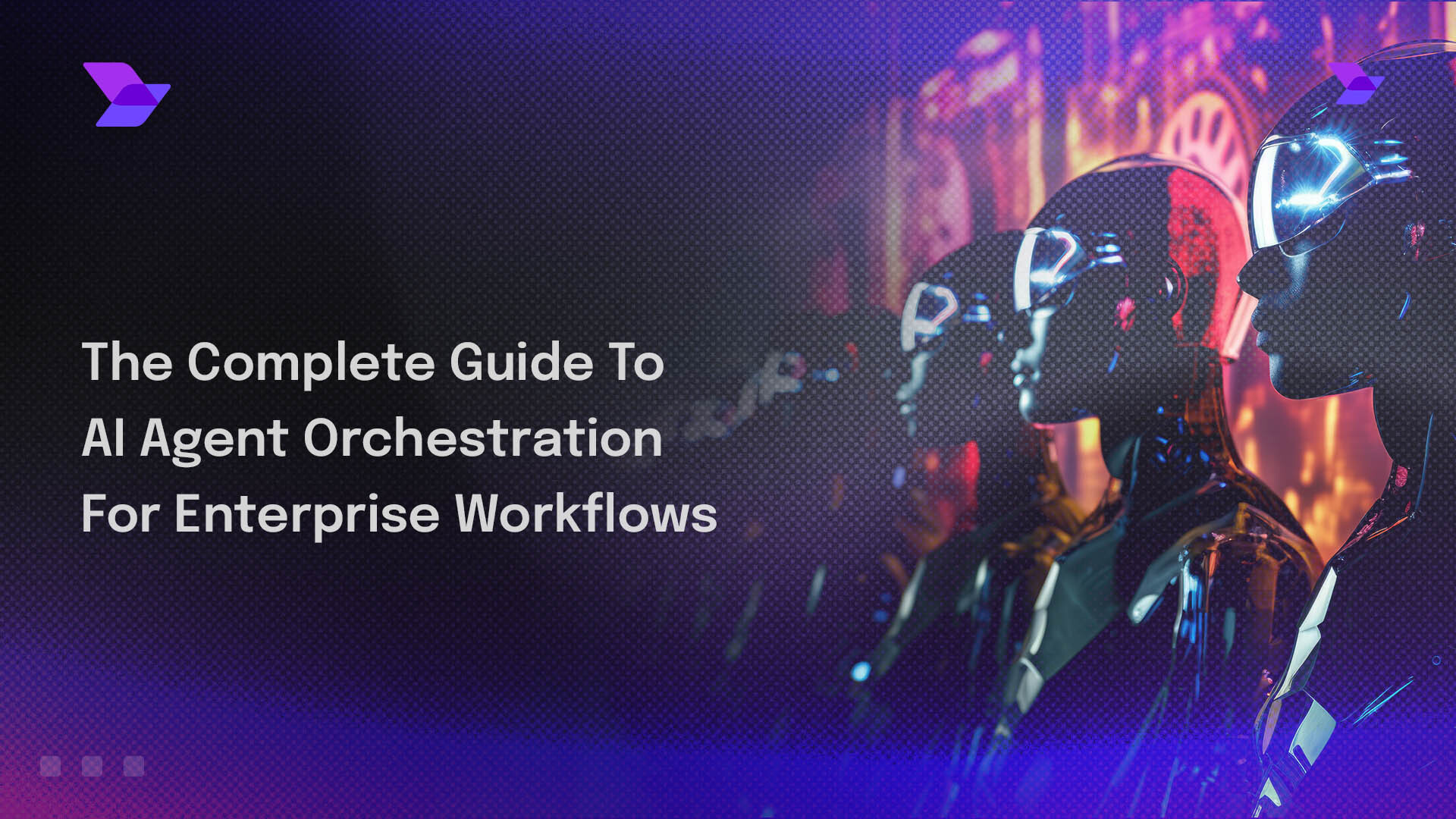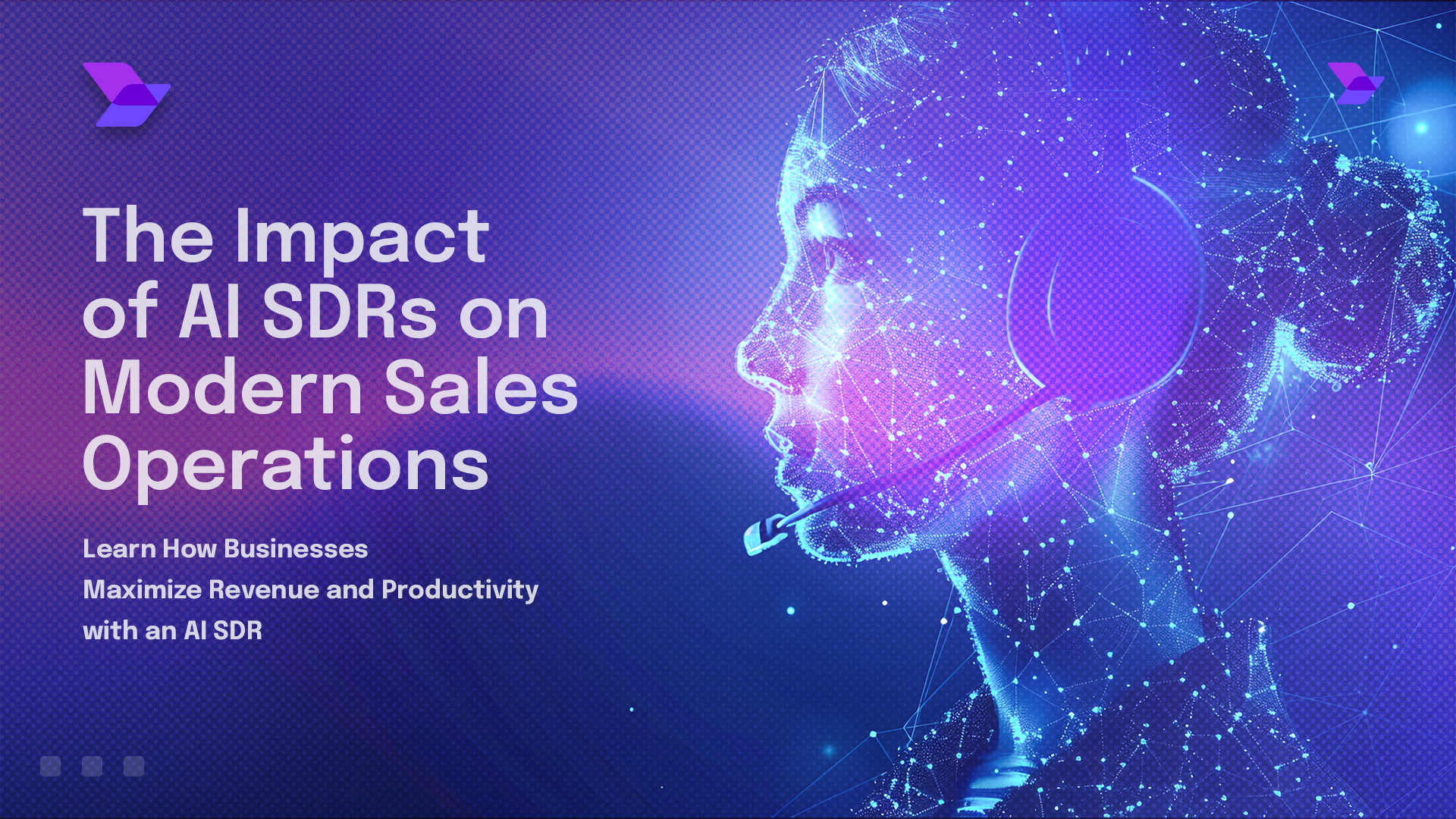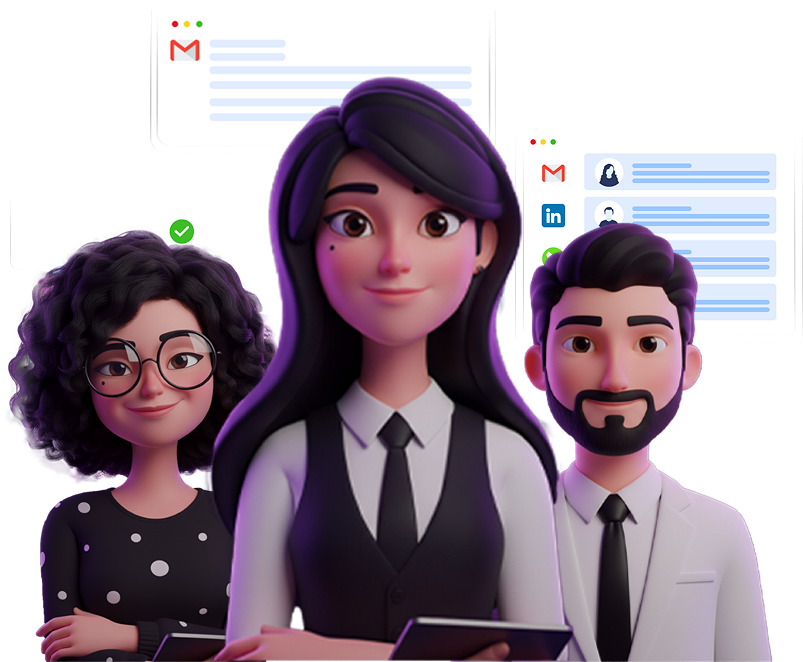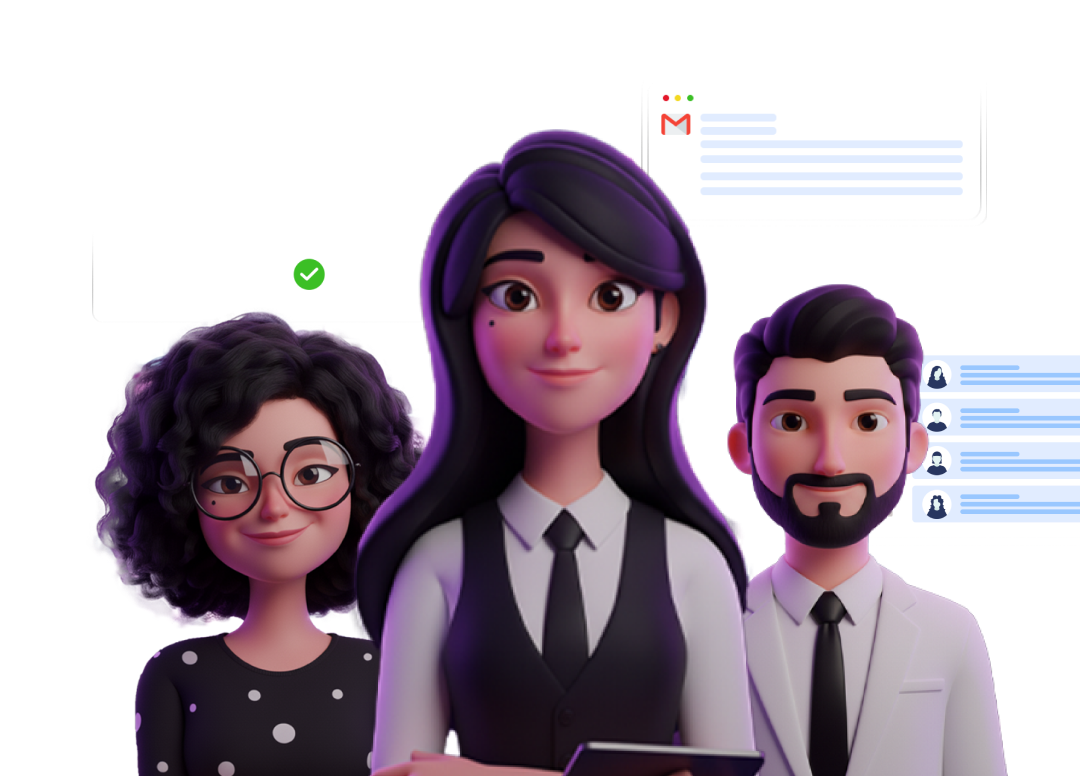Table Of Contents
Category
AIML
Artificial Intelligence
1. Introduction
The world of AI is upon us. While it hasn’t turned into the dystopian sci-fi nightmare some classics predicted (yet), it has become one of the most powerful technological advancements of our time. AI is proving to be an indispensable tool across industries, boosting productivity and efficiency by over 61% for employees worldwide. The rapid evolution of AI—driven by machine learning, deep learning, natural language processing, and other AI development technologies—continues to reshape how we work. In fact, 54% of organizations have reported in multiple surveys that AI solutions are not just effective but also cost-efficient, with a single generative AI tool often replacing the workload of multiple employees.
Among the many applications of AI, generative AI stands out as the most revolutionary. These gen AI platforms leverage vast amounts of human intelligence data to generate AI-driven content across various domains. While generative AI initially gained traction for automating text-based tasks—like drafting professional emails—it has rapidly expanded its capabilities. Today, generative AI tools for coding can produce software development code with impressive accuracy, gen AI tools for art can create stunning digital artwork, and AI-powered video generation tools can edit and produce fully formed videos. Even podcast creation has entered the realm of AI automation—so, what’s next for human influencers?
The rise of generative AI platforms is reflected in its market growth. By the end of 2023, the industry was valued at a staggering $45 billion—nearly double its worth in 2022. With an annual increase of approximately $20 billion expected to continue through 2030, top generative AI tools are rapidly becoming the new norm.
In this blog, we’ll introduce you to the best generative AI tools available today—whether you’re looking to enhance productivity, streamline creative tasks, or just explore the endless possibilities of AI innovation. After all, when you’re witnessing a new industrial revolution, why not make the most of it?

2. The Criteria We Used To Shortlist The Best Generative AI Tools in 2025
Our list of the top generative AI tools in 2025 was specifically curated with the following critiques in mind:
Here is what each criteria represents:
2.1. Functionality (30%):
Evaluates the range and versatility of features the gen AI tool offers, including its ability to handle various tasks like text generation, image creation, or data synthesis.
2.2. Ease of Use (20%):
Assesses how user-friendly the generative AI tool is, including its interface, setup, and accessibility for non-technical users.
2.3. Accuracy and Quality (25%):
Measures the precision and reliability of outputs generated by the gen AI tool, ensuring high-quality results.
2.4. Customization (10%):
Looks at the level of control users have in fine-tuning or customizing the generative AI tool’s models or outputs to meet specific needs.
2.5. Integration (10%):
Considers how well the generative AI tool integrates with existing workflows, software, or platforms, enhancing productivity.
2.6. Cost Efficiency (5%):
Evaluates the pricing in relation to the value provided, ensuring that the gen AI tool offers a good return on investment.
AI is transforming businesses worldwide! Discover how generative AI-driven business solutions can optimize efficiency and growth.
3. Our Picks for the Best Generative AI Tools in 2025
Here are our picks for the top generative AI tools in 2025 that met all of our criteria perfectly:
3.1. ChatGPT
ChatGPT, developed by OpenAI, is one of the top generative AI tools known for producing human-like text with remarkable accuracy. Its ability to facilitate natural language conversations, answer complex queries, and support AI-driven content creation makes it an incredibly versatile asset across various industries. From customer service AI solutions to generative AI for writing, ChatGPT has become an essential tool for businesses, marketers, and creators alike.
Thanks to continuous updates and improvements, ChatGPT evolves to provide more precise and context-aware responses. However, like all generative AI models, it faces challenges such as handling misinformation and maintaining contextual relevance. Despite these hurdles, its adoption continues to grow as businesses and individuals seek AI-driven business solutions for efficiency and productivity.
3.1.1. Key Features and Benefits of ChatGPT
- Fluent and human-like text generation – Produces well-structured, coherent responses.
- Realistic conversational AI – Engages in natural, dynamic interactions.
- AI-generated insights and content – Provides detailed and informative responses across a range of topics.
- Creative writing assistance – Helps with brainstorming, idea generation, and content drafting.
- Context-aware responses – Understands and adapts to ongoing conversations.
3.1.2. Use Cases of ChatGPT
- AI-powered customer service – Enhances support with intelligent gen AI chatbots that streamline user interactions.
- Content creation with generative AI – Assists in writing articles, blogs, and marketing content effortlessly.
- Creative brainstorming tool – Helps writers generate fresh ideas, overcome creative blocks, and refine their work.
3.2. GitHub Copilot
GitHub Copilot is a leading generative AI tool for coding, revolutionizing software development with AI-powered code generation. Designed to enhance efficiency and streamline workflows, this gen AI tool for coding seamlessly integrates with top code editors to provide real-time coding assistance. Whether you’re a beginner or an experienced developer, GitHub Copilot helps write clean, efficient code faster by offering context-aware suggestions, generating code snippets, and even providing explanations to improve understanding.
With support for multiple programming languages, GitHub Copilot not only accelerates development but also enables developers to explore new coding concepts, making it a powerful gen AI platform for coding.

3.2.1. Key Features and Benefits of GitHub Copilot
- Seamless integration – Works effortlessly with top code editors like Visual Studio Code.
- AI-generated code snippets – Provides complete generative AI solutions for coding, along with explanations for better comprehension.
- Smart code suggestions – Offers real-time, AI-powered autocompletion, enhancing efficiency.
- Versatile programming support – Assists with multiple languages, from Python and JavaScript to C++ and more.
- Adaptive learning – Personalizes suggestions by analyzing individual coding patterns.
3.2.2. Use Cases of GitHub Copilot
- Accelerates development workflows – Speeds up coding, helping developers meet tight deadlines efficiently.
- Enhances learning – Acts as a generative AI-powered coding assistant, teaching new programming concepts.
- Improves code quality – Encourages adherence to best coding practices through AI-driven insights.
- Aids in complex projects – Helps developers, including beginners, navigate and contribute to large codebases.
- Boosts creativity – Suggests alternative coding approaches and innovative solutions.
3.3. DALL-E 2
DALL·E 2 is a leading generative AI tool for art, transforming text-based prompts into visually stunning images. As one of the most advanced AI-driven image synthesis platforms, it enables artists, designers, and content creators to push creative boundaries, generating unique, high-quality visuals from simple descriptions. Whether crafting abstract designs, photorealistic renderings, or imaginative artwork, this generative AI tool has redefined the way visual content is created.
Despite occasional conceptual accuracy limitations, DALL·E 2 continues to excel in producing custom artwork, offering AI-powered creativity for a range of industries.
3.3.1. Key Features and Benefits of DALL-E 2
- Cutting-edge AI for image generation – A powerful generative AI platform that brings ideas to life.
- Text-to-image synthesis – Transforms text prompts into visually compelling images.
- Versatile artistic styles – Supports everything from abstract digital art to hyper-realistic visuals.
- Creative control – Allows customization of composition, lighting, and artistic style.
- High-detail output – Generates both broad conceptual visuals and intricate, fine-tuned imagery.
3.3.2. Use Cases of DALL-E 2
- AI-powered creative assistance – Helps artists turn imaginative concepts into stunning visuals.
- Next-level design innovation – Empowers designers to craft unique and original visual content.
- Content creation for media – Assists in generating custom, high-impact images for blogs, advertisements, and social media.
- Immersive world-building – Supports the creation of visually rich virtual worlds for gaming and digital storytelling.
Stay ahead of the competition—embrace AI-powered automation and maximize your productivity with top Gen AI tools!
3.4. Synthesia
Synthesia AI is a leading generative AI tool for video generation, revolutionizing AI-driven content creation by allowing users to generate lifelike videos from text inputs. Leveraging advanced deep learning techniques, it seamlessly combines text and visuals to produce high-quality, AI-generated videos, making it an essential tool for businesses, educators, and content creators.
As one of the most popular generative AI platforms, Synthesia is widely used across industries such as marketing, training, and entertainment, transforming how we communicate complex ideas through video.
3.4.1. Key Features and Benefits of Synthesia
- AI-powered video creation – Generates realistic, human-like videos from simple text scripts.
- Customizable avatars and voices – Supports AI-generated voiceovers and animated presenters.
- Seamless content adaptation – Enables easy localization with multilingual AI voice generation.
- Professional-grade visuals – Produces studio-quality AI videos without the need for filming.
- User-friendly interface – Requires no prior editing experience, making it accessible for all users.
3.4.2. Use Cases of Synthesia
- AI-driven marketing videos – Enhances advertising with engaging, AI-generated video content.
- Training and education – Empowers businesses to create e-learning modules and instructional videos.
- Corporate communication – Streamlines internal messaging, onboarding, and presentations.
- Social media and content creation – Helps influencers and brands produce high-quality video content effortlessly.
- AI-powered customer engagement – Personalizes user interactions with automated video responses.
3.5. Cohere
Cohere is a powerful generative AI platform designed for natural language processing (NLP) and conversational AI. With its advanced AI-driven text generation capabilities, Cohere enables developers to build dynamic dialogue systems that enhance user engagement. This gen AI tool for content creation is particularly valuable in marketing, where it excels at generating personalized email content and automated messaging.
While Cohere’s adaptability is widely recognized, fine-tuning its generative AI models ensures that responses remain contextually accurate and coherent throughout interactions.
3.5.1. Key Features and Benefits of Cohere
- Versatile NLP capabilities – Supports a wide range of natural language generation tasks.
- AI-powered chatbots – Enables businesses to create interactive conversational agents for customer engagement.
- Personalized AI-generated content – Specializes in crafting tailored marketing emails and automated messages.
- Authentic, human-like responses – Delivers engaging, context-aware conversations.
- Business-focused AI solutions – Provides scalable AI-driven business solutions across industries.
3.5.2. Use Cases of Cohere
- AI-powered chatbots for businesses – Helps brands build interactive AI chatbots for enhanced customer support.
- Automated customer communication – Streamlines responses to inquiries with AI-generated messaging.
- Marketing personalization – Improves email marketing campaigns with custom AI-generated content.
- Enterprise-wide deployment – Utilized in e-commerce, customer service, and digital marketing for scalable AI integration.
3.6. AlphaCode
AlphaCode is an AI-powered coding assistant that utilizes generative AI for software development, helping programmers write, debug, and optimize code efficiently. Developed with cutting-edge gen AI technology, AlphaCode enhances developer productivity by providing real-time code suggestions, AI-driven bug fixes, and performance optimizations.
While AlphaCode boosts efficiency and minimizes errors, its reliance on pre-established programming patterns means complex scenarios may sometimes require manual refinement for optimal performance.
3.6.1. Key Features and Benefits of AlphaCode
- Advanced generative AI for coding – Offers AI-driven coding assistance for developers of all levels.
- Multi-language support – Compatible with a wide range of programming languages and paradigms.
- Real-time AI-powered debugging – Detects and resolves coding errors instantly.
- Code optimization suggestions – Provides insights for enhanced software performance.
- Collaborative AI coding solutions – Enables team-based development with shared coding recommendations.

3.6.2. Use Cases of AlphaCode
- AI-assisted programming – Helps developers automate repetitive coding tasks and write cleaner code.
- Bug detection and debugging – Improves software quality with real-time AI-driven error resolution.
- Learning and upskilling – Supports programmers in learning new languages with AI-generated code examples.
- Enterprise software development – Assists companies in scaling AI-powered coding solutions for large projects.
4. Comparing Our Picks for the Best Generative AI Tools in 2025
Here’s a comprehensive comparison between the tools we chose as the top generative AI tools in 2025:
5. Conclusion and Future Trends
The rapid evolution of generative AI solutions has already transformed the way we create, interact, and automate tasks across industries. From AI-powered writing assistants to generative AI tools for coding, the applications of this groundbreaking technology continue to expand at an unprecedented pace. Businesses, creators, and developers now rely on leading generative AI tools to streamline workflows, enhance creativity, and boost productivity.
As we look ahead, several key trends in generative AI development are expected to shape the industry:
- Multimodal AI Capabilities – The next generation of gen AI platforms will seamlessly integrate text, image, video, and audio generation, allowing users to create content across multiple formats with a single AI model.
- Enhanced Personalization – Generative AI-driven business solutions will continue to evolve, offering hyper-personalized customer experiences, from AI-generated marketing campaigns to customized educational materials.
- Greater Accuracy and Context Awareness – Advancements in large language models (LLMs) and deep learning will refine AI’s ability to produce contextually accurate, bias-free, and human-like responses.
- Widespread Enterprise Adoption – More industries will integrate enterprise generative AI platforms for everything from automated content creation to AI-powered customer service solutions.
- Ethical AI and Regulation – As generative AI innovation progresses, governments and organizations will focus on ensuring responsible AI development, addressing issues like misinformation, bias, and intellectual property rights.
With the global generative AI market expected to grow exponentially, adopting the best generative AI tools today ensures businesses and individuals stay ahead in this new digital era. The AI revolution is far from over—it’s just getting started.
6. FAQs (Frequently Asked Questions)
6.1. What is Generative AI?
Generative AI, also known as Gen AI, is a subset of artificial intelligence designed to create new content—including text, images, videos, audio, and even code—by learning patterns from vast datasets. It powers various gen AI applications, from AI-generated art to automated content creation and AI-driven coding assistants.
6.2. How does Generative AI work?
Generative AI tools utilize deep learning algorithms, neural networks, and large language models (LLMs) to analyze vast amounts of data. By identifying patterns, these models generate high-quality, original content that mimics human creativity. Popular gen AI platforms like ChatGPT, DALL·E 2, and GitHub Copilot use these techniques to assist with writing, image generation, and coding.
6.3. What are the benefits of Generative AI?
The best generative AI tools provide numerous benefits, including:
1. Enhanced creativity – AI assists in content creation, artwork, and music generation.
2. Increased productivity – Automates repetitive tasks, improving efficiency.
3. Personalized user experiences – Powers customized marketing, education, and AI-driven customer service.
4. Scalability – Enables businesses to produce large volumes of high-quality AI-generated content.
5. Innovative problem-solving – Helps developers, designers, and businesses optimize workflows.
6.4. What are the top Generative AI tools in 2025?
Some of the best generative AI tools in 2025 include:
1. ChatGPT – A leading LLM-based AI for content creation, conversational AI, and writing assistance.
2. GitHub Copilot – A gen AI tool for coding, offering real-time code suggestions and debugging.
3. DALL·E 2 – A top generative AI platform for image synthesis, turning text prompts into stunning visuals.
4. Synthesia – A gen AI for video generation, creating lifelike AI-powered videos.
5. Cohere – Specializes in generative AI applications for personalized marketing and AI chatbots.
5. AlphaCode – An AI-powered coding assistant that helps with software development and bug fixes.
6.5. What should you consider when choosing a Generative AI tool?
When selecting a top generative AI platform, consider:
1. Ease of use – How user-friendly is the interface?
2. Integration capabilities – Can it work with existing business tools, development environments, or creative platforms?
3. Customization – Does it offer tailored AI-generated content to match your needs?
4. Content quality – How accurate and high-quality are the AI-generated outputs?
5. Scalability – Can it handle large-scale content generation or enterprise-level demands?
6. Cost and support – Is there affordable pricing and strong customer support?
6.6. What are the most popular industry use cases for Generative AI?
1. Content marketing & social media – Automates the creation of blog posts, ad copy, and video content.
2. AI-driven customer service – Deploys gen AI chatbots for 24/7 automated support.
3. Software development – Enhances AI-powered coding platforms like GitHub Copilot and AlphaCode.
4. Visual and media creation – Uses AI-generated art, music, and videos for design and entertainment.
5. Education and e-learning – Generates personalized learning materials and interactive AI tutors.
6. Healthcare AI applications – Assists in medical documentation, AI-driven diagnostics, and research.
6.7. What is the future of Generative AI?
The future of generative AI solutions includes:
1. Hyper-realistic AI-generated content – More lifelike video avatars and AI-powered virtual influencers.
2. Greater AI-human collaboration – AI will assist in co-writing, co-designing, and co-developing projects.
3. Fully multimodal AI platforms – Unified text, image, voice, and video generation in a single AI system.
4. More ethical and responsible AI – Stricter AI regulations and bias-reduction initiatives.
5. Enterprise-wide AI adoption – Generative AI tools for enterprises will become business essentials.






.jpg)












